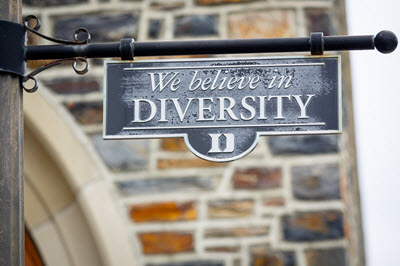
The Duke community and Department of Psychiatry & Behavioral Sciences are committed to continuing and growing diversity of thought, experience and culture across all three missions—clinical, education and research.
The following resources are available at Duke for our faculty, staff, and trainees.
- Center for Muslim Life
- Center for Sexual and Gender Diversity
- Human Resource Diversity & Institutional Equity Policies
- Jewish Life at Duke
- Mary Lou Williams Center for Black Culture
- Multicultural Resource Center
- Racial Equity Advisory Council
- Sexual and Gender Diversity Advisory Council
- Samuel Dubois Cook Society
- Black Student Alliance
- Duke Minority Housestaff Association
- Housestaff Association for Sexual & Gender Diversity
- Inclusion, Diversity, Equity, Advancement, and Leadership in the Sciences (IDEALS) Office
- Society for Advancement of Hispanic/Chicanos and Native Americans in Science (SACNAS)
- Student National Medical Association
All above-listed resources are open to all School of Medicine/Duke Health/Duke University community members.